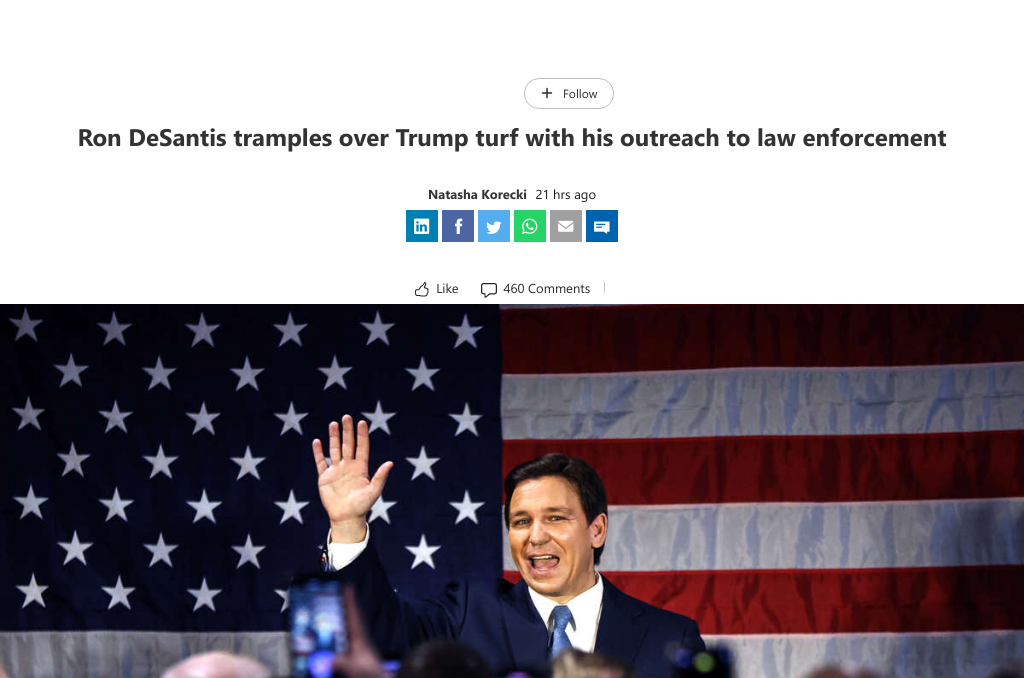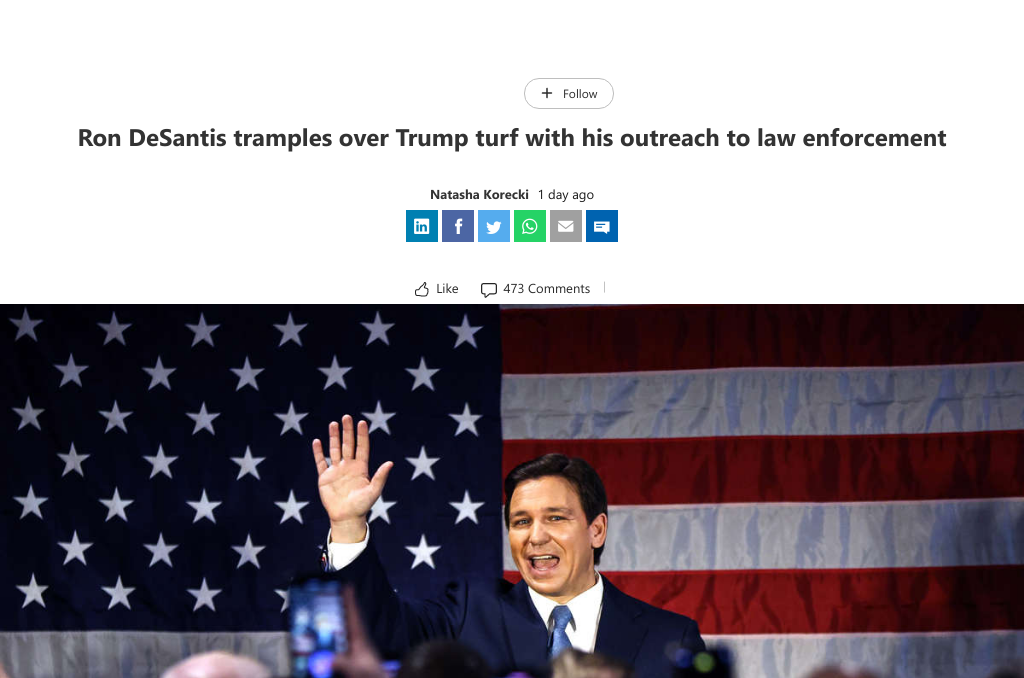In a significant development on the eve of the three-year anniversary of the January 6 attack on the U.S. Capitol, the Supreme Court has announced its decision to review a case challenging Donald Trump’s eligibility to run for president. The case stems from a Colorado Supreme Court ruling that found Trump ineligible to run under a provision of the 14th Amendment that disqualifies individuals who have engaged in insurrection from holding U.S. government posts.
Both Trump and the Colorado Republican Party have separately appealed the Colorado decision to the Supreme Court, arguing that only Congress has the authority to disqualify a candidate under the “insurrection clause” found in Section 3 of the 14th Amendment. They contend that states do not possess the power to make such determinations. The clause states that individuals who have “engaged in” insurrection against the government and who have taken an oath to support the Constitution are barred from holding office, but Congress can waive this restriction with a two-thirds vote of each chamber.
The Colorado Supreme Court ruled last week that Trump should be barred from the state’s primary ballot due to his alleged role in the riots at the U.S. Capitol on January 6, 2021.[0] Trump is currently facing federal charges in connection to his actions leading up to the riots, which occurred after he addressed his supporters during a rally on Capitol Hill.[1]
The case revolves around the interpretation of Section 3 of the 14th Amendment, which was enacted after the Civil War to prevent former U.S. officeholders who had participated in the Confederacy from returning to office.[2] The provision states that individuals who have taken an oath to support the Constitution and subsequently engaged in insurrection against the United States are disqualified from holding any office, civil or military, under the United States or any state. The Colorado and Maine Supreme Courts have both cited this section in their decisions to disqualify Trump from appearing on their respective primary ballots.
Critics of the Colorado and Maine decisions argue that they undermine democratic principles by disqualifying Trump without allowing voters to make their own decision.[3] They contend that the appropriate way to address concerns about Trump’s eligibility is through the electoral process, not through judicial rulings. However, supporters of the decisions maintain that they are necessary to uphold the integrity of the political process and prevent individuals who have engaged in insurrection from assuming office.
The Supreme Court’s decision to take up this case raises several critical questions.[4] Justices will have to determine whether Trump’s actions related to the Capitol riot can be considered support of an insurrection, and they will also need to assess the extent of a state’s power to exclude a presidential candidate from the ballot.[4] Justice Neil Gorsuch, who once considered this issue as an appellate court judge in a less high-profile case, may play a crucial role in the court’s deliberations.[5]
Oral arguments for the case are scheduled for February 8, ensuring that the court’s decision will come at a time when the GOP primary calendar is heating up.[6] This case has the potential to become one of the most impactful elections-related decisions since the court’s ruling in Bush v. Gore, which effectively settled the 2000 presidential election.[4]
The outcome of this case will have significant implications for Trump’s political future and may set a precedent for future cases involving individuals who have been involved in insurrection. As the Supreme Court grapples with this constitutional quandary, it will also be considering other Trump-related cases, including ones related to the criminal prosecution of Capitol rioters and the question of whether ex-presidents enjoy absolute immunity from prosecution for actions taken while in office.[7]
In the coming weeks, the Supreme Court will have the opportunity to provide a definitive answer on whether Donald Trump is eligible to run for president. The decision they reach will have far-reaching consequences and will shape the future of American democracy.
0. “Trump appeals Colorado 14th Amendment election disqualification to US Supreme Court” WPVI-TV, 3 Jan. 2024, https://6abc.com/donald-trump-insurrection-clause-appeal-news/14267812/
1. “All the States Trying to Kick Trump Off the Ballot and Where Cases Stand” Newsweek, 28 Dec. 2023, https://www.newsweek.com/all-states-trying-kick-trump-off-ballot-where-cases-stand-1856331
2. “Supreme Court agrees to hear Trump plea to remain on Colorado ballot” SCOTUSblog, 5 Jan. 2024, https://www.scotusblog.com/2024/01/supreme-court-agrees-to-hear-trump-plea-to-remain-on-colorado-ballot/
3. “US supreme court to hear appeal of Colorado ruling removing Trump from state ballot” The Guardian US, 5 Jan. 2024, https://www.theguardian.com/us-news/2024/jan/05/supreme-court-trump-appeal-colorado-state-ballot
4. “US Supreme Court to hear Trump’s appeal to remain on Colorado ballot” Business Insider, 5 Jan. 2024, https://www.businessinsider.com/supreme-court-scotus-colorado-ballot-trump-eligibility-case-2024-1
5. “Could the Supreme Court actually disqualify Trump?” The Washington Post, 4 Jan. 2024, https://www.washingtonpost.com/politics/2024/01/04/could-supreme-court-actually-disqualify-trump
6. “SCOTUS to consider Trump 14th Amendment ballot disqualification case” ABC News, 5 Jan. 2024, https://abcnews.go.com/Politics/us-supreme-court-trump-14th-amendment-ballot-disqualification/story?id=106112607
7. “A clash over Trump’s disqualification tests the Supreme Court” The Economist, 2 Jan. 2024, https://www.economist.com/united-states/2024/01/02/a-clash-over-trumps-disqualification-lands-at-the-supreme-court



